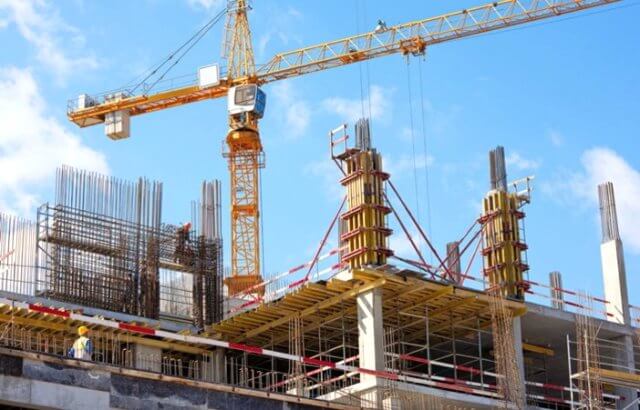Viet Nam's construction market forecast to lure more foreign investors
More foreign participation is forecast in Viet Nam’s construction market over the coming years, buoyed by the gradual opening up of the Vietnamese economy to foreign investors and the Government’s emphasis on infrastructure development.
 |
| The enactment of the Public-Private Partnership (PPP) Law in 2020 signals the Government’s intention to attract more private sector investments in the infrastructure sector. Photo luatvietnam.vn |
The information was included in a recent report by Fitch Solutions on the outlook for Viet Nam’s construction and infrastructure sector.
According to analysts from the UK-based financial data and research group, more than half of construction roles are awarded to foreign contractors, reflecting the openness of Viet Nam’s construction market. Foreign participation is mainly represented by South Korea, Japanese and Chinese engineering companies. Of which, Japanese financiers are particularly active in supporting projects in Viet Nam, highlighting their dominance as an important exporter of infrastructure.
“When analysing the mix of nationalities of companies operating in Viet Nam’s burgeoning construction and infrastructure market, we note that the country has one of the most diverse competitive landscapes within the Southeast Asia region,” the analysts noted.
According to Fitch, opportunities for foreign companies to participate in Viet Nam’s construction market exist mainly in areas where private or foreign companies have competitive advantages. These areas include designing, consulting, building and managing projects (especially projects that are more technically challenging) and supplying high-value industrial goods such as rolling stock and wind turbines.
Based on data from Fitch’s proprietary Infrastructure Key Projects Database (KPD), local Vietnamese companies unsurprisingly dominate the construction scene, holding 43 per cent of construction roles awarded. The proportion of local dominance is lower compared to its regional peers – in Indonesia, local companies hold 65 per cent of market share, Thai companies hold 56 per cent in Thailand, and Malaysian companies hold 62 per cent in Malaysia. Only the Philippines has a lower share of domestic dominance than Viet Nam at 34 per cent.
Major domestic players include joint-stock company Civil Engineering Construction Corporation, Trường Sơn Construction Corp, LILAMA Vietnam Machine Installation Corporation and Vinaconex.
The majority of roles are awarded to foreign companies, reflecting the openness of Viet Nam’s construction market. 57 per cent of all contractor roles are awarded to foreign companies, with three nationalities dominating. These foreign players are essential to the development of Viet Nam’s infrastructure sector, as they bring with them technology, expertise in project management and construction methods.
“The enactment of the Public-Private Partnership (PPP) Law in 2020 signals the Government’s intention to attract more private sector investment in the infrastructure sector, and we believe foreign players will play an increasingly important role over the next decade,” Fitch said.
Leading the foreign nationalities in construction roles are South Korean companies with 17 per cent of market share, represented by established brands such as GS E&C, Doosan Heavy Industries & Construction and POSCO E&C.
Japanese companies hold 14 per cent of market share and are mainly involved in infrastructure projects in the transportation and water sectors while Chinese companies currently hold approximately 10 per cent of the market share.
According to Fitch, the extent of Japan’s involvement in the Vietnamese infrastructure market is further illustrated by the amount of financial support provided by Japanese-linked organisations. Data from Fitch’s KPD reveals Japan’s dominance of the Vietnamese infrastructure financing landscape, with Japanese financiers accounting for slightly more than 20 per cent of all roles.
Source: VNS